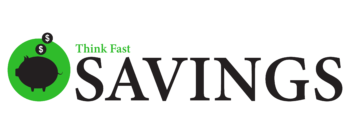Ensure Compliance & Mitigate Risks with Corporate Audit Services
In today’s complex business landscape, organizations face a myriad of challenges, including regulatory compliance, financial reporting accuracy, and risk management. Corporate audit services have emerged as a crucial safeguard, providing independent and objective assessments that help companies navigate these challenges and maintain operational integrity.
What are Corporate Audit Services?
Corporate audit services refer to a range of professional services provided by qualified auditors or audit firms to evaluate an organization’s financial statements, internal controls, and operational processes. These services are designed to ensure compliance with applicable laws, regulations, and industry standards, as well as to identify areas for improvement and potential risks.
Corporate audit services encompass various types of audits, including:
- Financial Statement Audits: These audits examine an organization’s financial statements to ensure they are accurate, complete, and in compliance with accounting principles and reporting standards.
- Internal Audits: Internal audits assess the effectiveness of an organization’s internal control systems, risk management processes, and operational efficiency.
- Compliance Audits: These audits evaluate an organization’s adherence to relevant laws, regulations, policies, and contractual obligations.
- Operational Audits: Operational audits evaluate the efficiency and effectiveness of an organization’s processes, systems, and procedures.
- Information Technology (IT) Audits: IT audits assess the security, integrity, and reliability of an organization’s information technology infrastructure and data management practices.
How Do Corporate Audit Services Work?
Corporate audit services typically follow a structured process to ensure thorough and comprehensive assessments. The process may involve the following steps:
- Planning and Scoping: The audit team works with the client organization to define the audit objectives, scope, and timeline, as well as to identify relevant stakeholders and gather necessary information.
- Risk Assessment: The auditors conduct a risk assessment to identify potential areas of concern or non-compliance, prioritizing the audit focus accordingly.
- Fieldwork and Data Collection: Auditors gather and analyze relevant data, documents, and evidence through interviews, observations, testing, and analytical procedures.
- Analysis and Evaluation: The collected data is evaluated against established criteria, such as regulations, industry standards, or best practices, to identify any gaps, deficiencies, or areas for improvement.
- Reporting: The audit team prepares a detailed report summarizing their findings, recommendations, and an action plan for addressing identified issues.
- Follow-up and Monitoring: The auditors may conduct follow-up activities to ensure that the recommended actions have been implemented effectively and to monitor the organization’s progress in addressing identified concerns.
Benefits of Corporate Audit Services
Engaging professional corporate audit services can provide numerous benefits to organizations, including:
- Compliance Assurance: Corporate audits help organizations ensure compliance with relevant laws, regulations, and industry standards, reducing the risk of penalties, legal actions, and reputational damage.
- Risk Mitigation: By identifying potential risks and areas of vulnerability, corporate audits enable organizations to implement effective controls and strategies to mitigate those risks.
- Operational Efficiency: Audits can identify opportunities for process optimization, cost reduction, and improved operational efficiency, ultimately enhancing profitability and competitiveness.
- Fraud Detection: Corporate audits can help detect and prevent fraudulent activities, protecting the organization’s assets and financial integrity.
- Enhanced Decision-Making: Audits provide valuable insights and data-driven recommendations, enabling management to make informed decisions based on objective assessments.
- Stakeholder Confidence: Regular audits demonstrate an organization’s commitment to transparency, accountability, and good governance, fostering trust and confidence among stakeholders, such as investors, customers, and regulatory bodies.
Things to Know Before Engaging Corporate Audit Services
Before engaging corporate audit services, it is essential to consider the following factors:
- Scope and Objectives: Clearly define the scope and objectives of the audit to ensure alignment with the organization’s needs and priorities.
- Auditor Qualifications and Experience: Research and select an audit firm or auditors with relevant qualifications, experience, and industry knowledge to ensure a thorough and effective audit process.
- Independence and Objectivity: Ensure that the auditors maintain independence and objectivity to provide unbiased assessments and recommendations.
- Confidentiality and Data Security: Understand the auditors’ policies and procedures for safeguarding sensitive information and maintaining data security throughout the audit process.
- Timelines and Resource Requirements: Determine the estimated timeline for the audit and allocate necessary resources, including personnel and access to relevant information and systems.
- Reporting and Communication: Establish clear communication channels and reporting protocols to ensure effective collaboration and timely delivery of audit findings and recommendations.
Systems and Tools Used by Corporate Audit Services Companies
Corporate audit services companies leverage various systems and tools to streamline and enhance the audit process, including:
- Audit Management Software: These specialized software solutions facilitate audit planning, risk assessment, workpaper management, and reporting, enabling auditors to efficiently organize and analyze data.
- Data Analytics Tools: Auditors use advanced data analytics tools to analyze large volumes of data, identify patterns and anomalies, and extract meaningful insights.
- Continuous Auditing and Monitoring Systems: These systems enable real-time monitoring of transactions, processes, and controls, allowing for timely detection of issues and potential risks.
- Collaboration and Communication Tools: Cloud-based collaboration platforms and communication tools facilitate seamless communication, document sharing, and remote access, enabling efficient coordination among audit teams and clients.
- Cybersecurity and Data Protection Tools: To ensure the confidentiality and integrity of client data, audit firms employ robust cybersecurity measures, such as encryption, access controls, and data loss prevention tools.
- Artificial Intelligence (AI) and Machine Learning (ML): Emerging technologies like AI and ML are increasingly being utilized in corporate audits to automate certain tasks, enhance risk assessments, and identify patterns and anomalies more effectively.
By leveraging these systems and tools, corporate audit services companies can streamline processes, enhance audit quality, and provide more comprehensive and actionable insights to their clients.
In the ever-evolving business landscape, corporate audit services play a vital role in promoting transparency, accountability, and effective risk management. By engaging reputable and experienced audit firms, organizations can gain valuable insights, mitigate risks, and foster stakeholder confidence, ultimately contributing to long-term success and sustainable growth.





